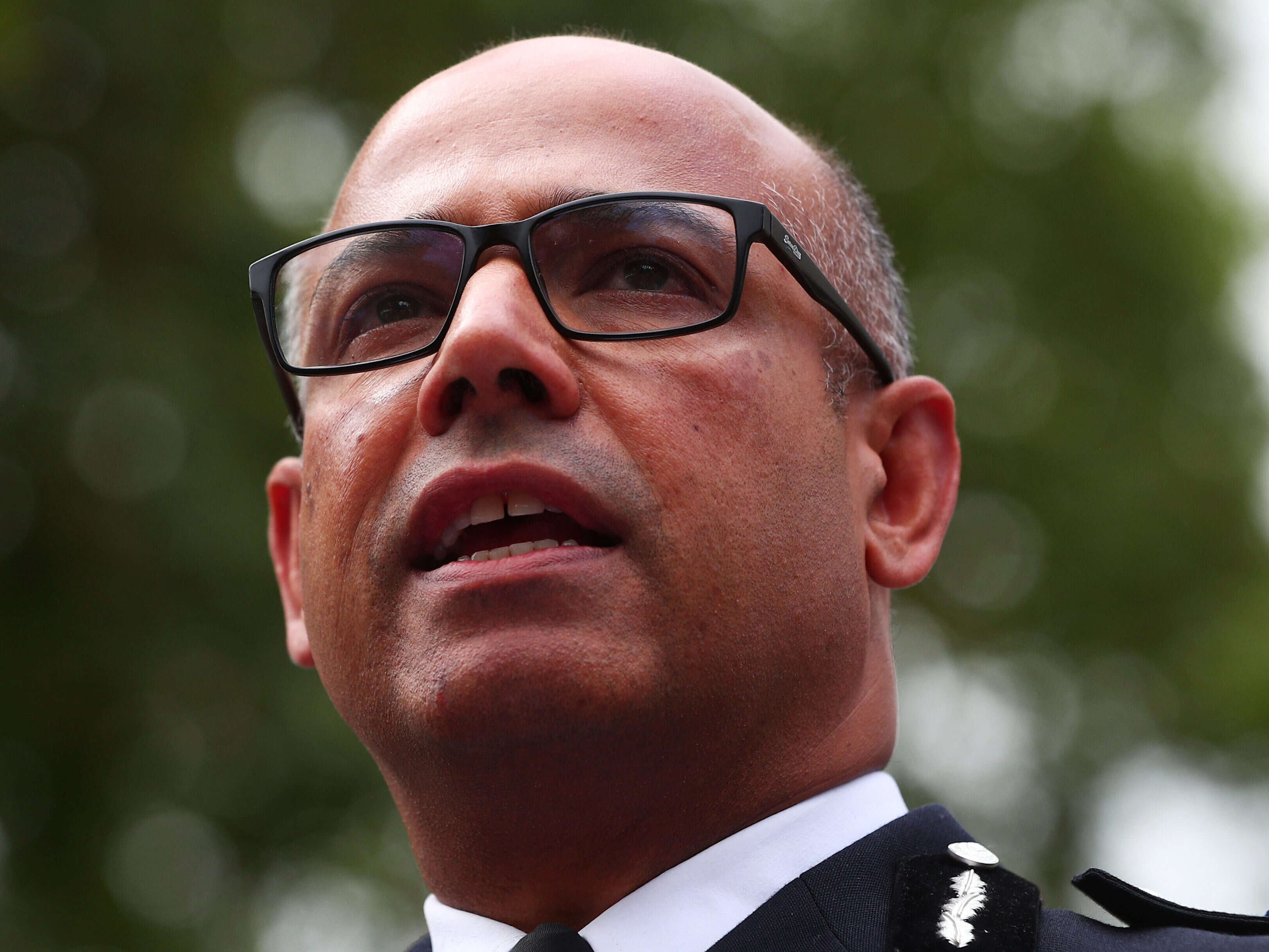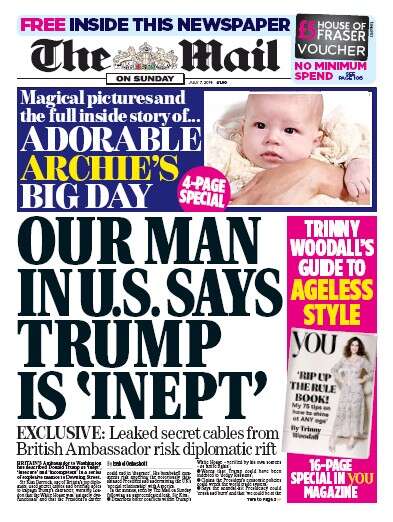
Met Police Assistant Commissioner Neil Basu has stood by his warning to editors that publishing leaked US diplomatic cables “may be a criminal matter” and insisted he made the “right call”.
Basu, who is the UK’s top anti-terror officer, issued the warning in July after the Mail on Sunday’s scoop revealed diplomatic memos about Donald Trump, sent by Washington Ambassador Sir Kim Darroch.
Sir Kim was forced to resign over the matter.
Basu later backtracked, but told a journalism conference today that he regretted the impact his statement had had on the relationship between the media and police and said he could have handled it differently.
The Met opened a criminal investigation into the leak, which is still ongoing, after journalist Isabel Oakeshott’s source was suspected of being a civil servant who breached the Official Secrets Act.
Teenage journalist Steven Edginton later revealed the scoop came after he was read the ambassador’s private correspondence by a trusted source before he worked on it with Oakeshott.

Basu was criticised by journalists after releasing a statement warning that the publication of the leaked communications “knowing the damage they have caused or are likely to cause” may be a criminal matter.
Speaking at the annual Society of Editors conference in London this afternoon, Basu said: “I do regret the impact of my statement, not because of the effect on me but because it risked damaging the relationship between the police and the media.”
He told the event at Stationer’s Hall that it was “quite tough” to be “accused by some of seeking to undermine press freedom” and have his professional judgement questioned.
He also revealed he was phoned directly by “deranged editors” unhappy with his statement, but added: “Knowing what I know now, would I do it again? The answer to that is yes.”
He went on: “Any police officer who is informed of a plan to commit a criminal offence, one for which there is no defence in law, should intervene.”
Basu said he “could have picked up the phone to editors in Fleet Street”, but revealed he “had no idea only one newspaper had the documents”, meaning he did not know who he would need to call.
He later found out other newspapers had seen the documents but turned them down, he said.
“I certainly knew that there was a plan to publish a document which I had senior legal advice was a criminal offence so my job was to stop that criminal offence happening,” he said.
“In my head there are ways and means of doing that. I would like a relationship with editors were we could have had that conversation in advance. What I didn’t know was who had the document.”
Basu went on: “[It was] a difficult call. In retrospect do I think it was the right call? It was the right call to try to intervene in a potential criminal offence… would I have done it in that way? No.
“Mainly because I am desperate to have a relationship with you that will help me fight terrorism.”
Picture: Reuters/Hannah McKay
Email pged@pressgazette.co.uk to point out mistakes, provide story tips or send in a letter for publication on our "Letters Page" blog
